Smarter farming on the horizon for Australian veg growers
In November 2021, it was announced that a multi-million-dollar ‘Smart Farm’ will be established in Gatton, Queensland. The Queensland Department of Agriculture (DAF) is partnering with Hort Innovation in the delivery of this project. The facility will give growers unprecedented access to the latest ag-tech on the market. Michelle De’Lisle speaks to DAF’s Ian Layden about the Smart Farm and what it will offer the Australian horticulture industry.
The Smart Farm facility in Gatton is set to combine technologies that encompass the entire farming system. This includes protected cropping, field robotics and sensors – paired together with post-harvest, supply chain and export development work.
It will comprise a ‘hub’ in Queensland, and a series of ‘satellite’ farms where equipment or development work that suits various crops or regional needs will be trialled.
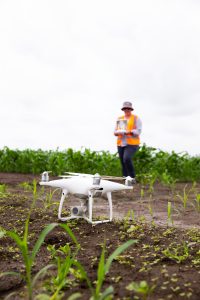
Queensland Department of Agriculture (DAF) Director of Vegetable, Systems and Supply Chains Research, Development and Extension (RD&E), Ian Layden, is the thought-leader behind the concept, and he explained why establishing the Smart Farm is crucial to the vegetable industry.
“While the vegetable industry will always have the need for pre-farmgate agronomy-based R&D in areas such as pest management – they’re critical problems that growers face daily – we needed something a bit more future-focused that was looking over the horizon, bringing together the field, pre-harvest, protected cropping, post-harvest and export environments,” Mr Layden explained.
“We’ll be looking at things like unique packaging, testing varieties for certain markets, working with seed and protected cropping companies and ag-tech companies.”
Mr Layden added that the project – along with an additional $2 million of capital funding provided by DAF – has allowed researchers to prioritise new skills and staff posting to service the industry and help to position growers for future challenges and opportunities.
“It allows us to reimagine the RD&E services and establish critical research infrastructure, such as a multi-bay climate-controlled glasshouse, which will enable current and new crop protection work to take place in modern facilities that industry and researchers need to solve grower problems.”
Growing the concept
When Mr Layden was appointed DAF Director of Vegetable, Systems and Supply Chains RD&E in late 2018, he began thinking about the Smart Farm initiative and what it could offer the industry.
“From a government and state agency research point of view, our Gatton Research Facility is the jewel in the crown in terms of vegetable RD&E in Australia – but to better support industry into the future it needed an injection of new thinking and infrastructure,” he said.
“I set about developing more conceptual plans and talking to industry as well as local grower groups including Lockyer Valley Growers, and road testing some of these ideas.
“With the Queensland Government investing close to $9 million over five years, this is a flagship initiative – and with an investment of this scale, we wanted to test the concept with Hort Innovation. In those discussions, it became clear that while Gatton would be a focus of the initiative, the work in protected cropping, post-harvest and agricultural technology more generally would be of benefit to a range growers across Australia.”
DAF then worked with Hort Innovation to develop the concept under the Hort Frontiers Advanced Production Systems Fund.
“In hindsight, going to Hort Innovation and having to slightly rethink the concept has been a good thing. While it’s early days, tying this project in with a Research and Development Corporation will provide a much better legacy, direction and shape for growers,” Mr Layden said.
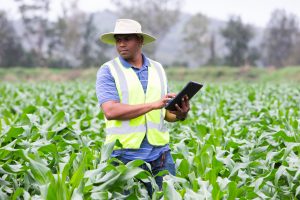
Adoption focus
Mr Layden pointed out that the project’s goal is to help growers adopt new practices, whether it be protected cropping, production or supply chain practices, with an opportunity of including robotics.
It will leave a long-lasting legacy for the vegetable industry.
“The benefit of the Smart Farm is that it continues to cement the critical importance of vegetable focused RD&E. It secures future R&D for the vegetable industry, investing in not just facilities, but people – developing the next generation of vegetable researchers,” he said.
Mr Layden added that this investment will look to ‘de-risk’ the ag-tech adoption for growers.
“Most growers will tell you there’s a lot of ag-tech out there on the market. Some of it looks really promising, others less so. We’ll have the ability to try and de-risk some of that technology, so people can see it working in front of their eyes in local conditions,” he said.
“There’s a lot of potential within digital horticulture and ag-tech; however, there’s still an element of market failure that exists. This type of investment can try and take the risk out of it for industry, and members can see it working and then adopt it themselves when they’re feeling more comfortable.”
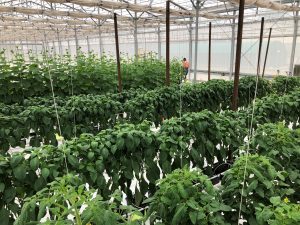
Industry collaboration
All activities will be directed by industry demand, and a range of industry partners will be consulted in the procuring of tools for use through the facility and on commercial farms.
“We’ve installed a Smart Farm server, which means tech companies and growers can access the sensor data that we’re in the process of deploying,” Mr Layden said.
“For example, soil moisture bore monitoring technology, bore height and water quality condition, which is an issue in the Lockyer Valley.
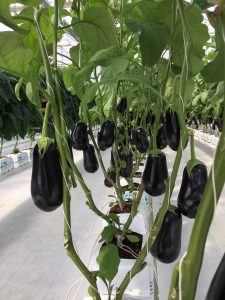
“We’re also developing a control tower with project collaborators Hitachi Vantara. This will be a customised interface decision support tool, where information coming in will be analysed and aid in data-driven decision making.
“There is an advanced weather network that DAF set up around 18 months ago in the Lockyer Valley and Darling Downs, which is comprised of 50 weather stations established in partnership with the Bureau of Meteorology and Telstra. This data will be available to all growers and soon we’ll be asking local growers to help us fine tune how that data is displayed.”
Meanwhile, another ag-tech component to the Smart Farm will be a retractable roof protected cropping structure.
“The plan is to have multiple roof openings to allow a number of trials to be running concurrently and under different environments. That’ll be a fully automated system,” Mr Layden explained.
“The project has received excellent support from protected cropping companies, and – in conjunction with seed companies like Rijk Zwaan and Lefroy Valley – there is great potential to optimise and showcase the possibilities of protected cropping in the sub-tropics, and link that to supply chain work.”
Grower involvement
Vegetable growers have already started to get involved in the Smart Farm, with growers interested in accessing post-harvest expertise as well as interest in undertaking robotic weeding trials.
“We’ve also been approached by protected cropping growers wanting to test varieties for certain markets. We can grow those field crops now in our research site or at their place and move them through into a post-harvest or simulated supply chain environment, as well as testing different packaging,” Mr Layden said.
Growers will be able to visit the Smart Farm once it’s fully operational, with the DAF team aiming to host a minimum of one open house event annually across the project’s lifespan. It is also hoped that through working with the VegNET 3.0 project inbound and outbound study tours can occur.
Get in touch
Mr Layden and the project team would like to hear from growers and other horticulture industry members.
“If they want to access the site or if they want us to talk to them more one-on-one about the possibilities that an initiative like this offers, and how it might apply to them, I encourage them to reach out,” he said.
The first step will be to have a rolling Expression of Interest (EOI) process where growers and technology providers can register their interest.
“We’ll be asking growers across Australia to register interest in becoming a demonstration farm and/or interest in a problem they would like to see solved. We expect the EOI process to ‘go live’ in early March. Similarly, we will ask technology providers to express an interest in the project,” Mr Layden said.
“This model is quite novel and unique today – but in five years’ time, we hope it’s just seen as a way forward for a mix of RD&E in vegetables and other crops.
“We have ideas about expanding this concept to other parts of the state; possibly working in more of a tree crops environment in Mareeba or Bundaberg – which are both powerhouses of horticultural production.”
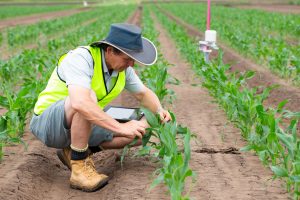
Throwing support behind ground-breaking facility
Hort Innovation Head of Extension Jane Wightman said the technologies showcased through the Gatton Smart Farm will help growers across Australia better manage plant growth and production, improve supply chain efficiency and customer satisfaction.
“Horticulture is the fastest-growing agricultural sector in Australia – with a 27 per cent hike in value over the past five years to $15.1 billion, and our modelling shows that figure could double by 2030,” she said.
Ms Wightman said technology adoption will be key to keeping pace with this rapid growth; however, that can prove a challenge.
“It can be difficult to navigate the digital agricultural marketplace and to know where to invest,” she said.
Ms Wightman echoed the sentiments of the Queensland Department of Agriculture’s Ian Layden, who said the Gatton Smart Farm will help growers to ‘de-risk’ ag-tech.
“This will enable them to select and experience the latest technologies firsthand and understand the costs and benefits of adoption,” she said.
Find out more
For further details or to register your interest in Gatton Smart Farm activities, please contact Ian Layden on 0409 495 737 or email gattonsmartfarm@daf.qld.gov.au.
More information can be found here.
Driving ag-tech adoption across Australia is funded by the Hort Frontiers Advanced Production System Fund, part of the Hort Frontiers strategic partnership initiative developed by Hort Innovation, with co-investment from the Queensland Department of Agriculture and Fisheries and contributions from the Australian Government.
Project Number: AS20007
Cover image: Pictured (from L-R) Lockyer Valley Growers Group President Michael Sippel, Hort Innovation Head of Extension Jane Wightman, The Hon. Mark Furner MP, Minister for Agricultural Industry Development and Fisheries and Minister for Rural Communities with AUSVEG Deputy Chair Belinda Frentz and DAF Director of Vegetable, Systems and Supply Chains Research, Development and Extension Ian Layden.

